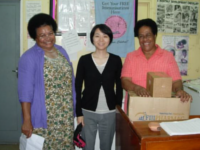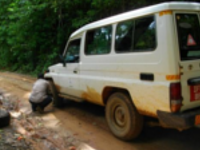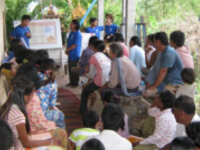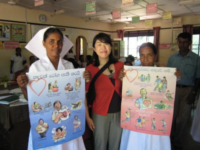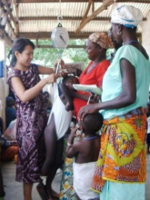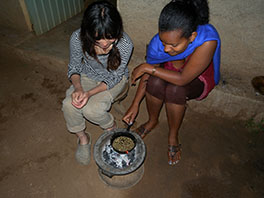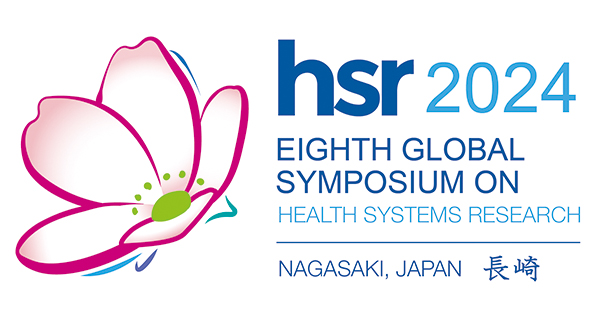Yumiko Nakahara Graduate School of International Health Development, Completion March 2010
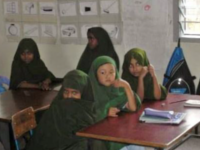 Prior to graduation, I was dispatched to the JICA Kenya office as a healthcare planning and research staffer in March 2010. Before enrolling in the Graduate School of International Health Development, I worked in Japan as a nurse, and at the same time, served as a medical coordinator of a Japanese NGO for 17 years, involved in a wide range of activities such as slum district development in Kenya, emergency medical support in refugee camps, and healthcare activities targeting nomads. However, having so much practice and experience with no academic knowledge to back them up, I gradually began to question my international healthcare activities. This is why I enrolled in this Graduate School to earn my MPH. An MPH is currently an essential passport in the field of international healthcare, but having to learn various subjects from statistics to cultural anthropology is very difficult. However, this is what provides students the ability to handle any worksite and any situation. In my case, my place of internship was UNICEF Kenya, but the only long-term experience and knowledge I had were with my NGO. In JICA, an unknown territory that is my current workplace as well, the size and target of projects were different, and in addition, planning and research staff are required to do all sorts of things outside the field of international healthcare, such as logistics and accounting.
Prior to graduation, I was dispatched to the JICA Kenya office as a healthcare planning and research staffer in March 2010. Before enrolling in the Graduate School of International Health Development, I worked in Japan as a nurse, and at the same time, served as a medical coordinator of a Japanese NGO for 17 years, involved in a wide range of activities such as slum district development in Kenya, emergency medical support in refugee camps, and healthcare activities targeting nomads. However, having so much practice and experience with no academic knowledge to back them up, I gradually began to question my international healthcare activities. This is why I enrolled in this Graduate School to earn my MPH. An MPH is currently an essential passport in the field of international healthcare, but having to learn various subjects from statistics to cultural anthropology is very difficult. However, this is what provides students the ability to handle any worksite and any situation. In my case, my place of internship was UNICEF Kenya, but the only long-term experience and knowledge I had were with my NGO. In JICA, an unknown territory that is my current workplace as well, the size and target of projects were different, and in addition, planning and research staff are required to do all sorts of things outside the field of international healthcare, such as logistics and accounting.
However, I am equipped with the knowledge learned at the Graduate School of International Health Development; the experience gained through field trip and internship program; the network of classmates and professors; and the willpower that allowed me to manage housework, child rearing and studies all at the same time. I hope that these tools will help me grow into someone who can handle difficult situations and is needed in the international healthcare scene.
(Photo: A child’s classroom)

